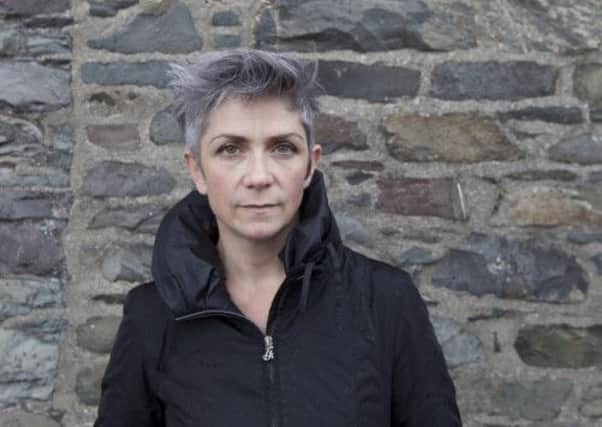Book review: The Red Road by Denise Mina


The Red Road
by Denise Mina
Orion, 373pp, £12.99
Denise Mina’s new novel begins in 1997 on the night that Princess Diana died, and opens, horribly, with the sexual abuse of a 14-year-old girl and two killings. The girl, Rose, is arrested, but charged with only the second crime, thanks to the intervention of a sympathetic lawyer, Julius Macmillan. He will continue to care for her, visiting her in prison along with his son, Robert. When she comes out, rehabilitated, she will be taken into his household, then, gratefully and lovingly, become Robert’s children’s nanny and his wife’s close friend. She will also serve as Julius’ assistant in the shady, and indeed illegal, side of his law practice. This will lead to another death, years later.
Meanwhile, on that terrible night in 1997, the young brother of the first victim has been fingered for the killing. “Fingered” is the right word. Thanks to Macmillan and a corrupt policeman, fingerprints have been switched. So young Michael Brown serves a long and destructive jail term which, as so often happens, turns him into a career criminal .
Advertisement
Hide AdThis is the prelude. When the story resumes some 15 years later, Brown is in prison again, about to be tried for arms dealing. Julius Macmillan has just died. His son, Robert, has gone missing, and an idealistic Glasgow Pakistani fund-raiser for relief work in his native country has been found stabbed to death in an upper floor of the Red Road multi-storey flats which are being prepared for demolition. Fingerprints found at the scene of the crime are identified as Michael Brown’s. How come? It is up to DI Alex Morrow, mother of one-year-old twins, and, embarrassingly, half-sister to a Glasgow gangster, to solve the puzzle.
That’s enough of the set-up. The plot is as compelling as it is intricate. Denise Mina grows in assurance and becomes more accomplished with every book; and this one is a cracker, beautifully worked-out, every scene serving a purpose. It demands concentration from the reader, but the story is so gripping that you are likely to hurry along, eager to learn how the plot unfolds. Eventually you arrive at a splendid abrupt and laconic conclusion, which rightly leaves some questions open. Then I suggest you may want to go back to savour the details, for this is that rare thing, a crime novel that invites, and benefits from, a second reading.
It is an enjoyable book, but also a disturbing one, for underlying the conventional elements of the crime novel/police procedural, is the assumption that criminality permeates our society. Among the men who engage in vile sexual abuse of minors are otherwise respectable pillars of society. Lawyers associate with criminals and are active in money-laundering. Policemen are corrupt and at a time of financial constraint many are looking to a future working with security companies that operate on either side of the law. Alex Morrow is an honest cop, but she too has to make compromises, and is forever having to guard her back.
The bleak picture Mina offers may make her novel appear bitter and cynical. The bitterness and cynicism are there. How could they not be in a world where power is employed without scruple? Yet Mina understands the complexity of our nature. She knows that people may act appallingly and yet not be without redeeming qualities, and that even those who do dreadful things may have aspirations to virtue, may indeed in some part of their life and nature be good. Rose is such a person. So too are the lawyer Macmillan, and the sometimes attractive, self-destructive advocate Atholl, a daring creation who teeters on the verge of being incredible, but never totters over it.
Michael Brown is perhaps the most disturbing figure: a dreadful and disgusting man who was once a frightened and affectionate child. How did he come to be what he is? He is a victim of injustice, corrupted by the brutality of prison life. Alex Morrow herself may be seen as a Glasgow version of Raymond Chandler’s “soiled Galahad” walking the mean streets, but she is treated less sentimentally than Chandler treated his Philip Marlowe.
Remarkably, in the dark world Mina portrays with bitter relish, there is a place for love. Indeed love and the possibility of its redeeming power is one of the themes of the novel. It is love as much as fear or the wish for revenge that prompts the murder of the charity worker, and it is disappointed love that leads to acts of betrayal. If The Red Road is, as I say, a disturbing novel, this is because Denise Mina never allows the reader to attain the comfort of having a settled view of her characters. You might say her subject is the complexity of human nature.
Advertisement
Hide AdCrime fiction is entertainment, and Denise Mina is always entertaining. But the best crime writers are never only entertainers, because, as Nicholas Freeling wrote, “crime is a phenomenon of significance as much metaphysical as material. Inherent is a destruction of mind more frequent than that of body”. Even murder, he thought, may be “trivial by comparison with the crimes against the spirit, which may strike in childhood and leave a long trail through years of suffering and ruin.” It is that trail which Mina leads us along, and those crimes against the spirit which she brings to our notice.